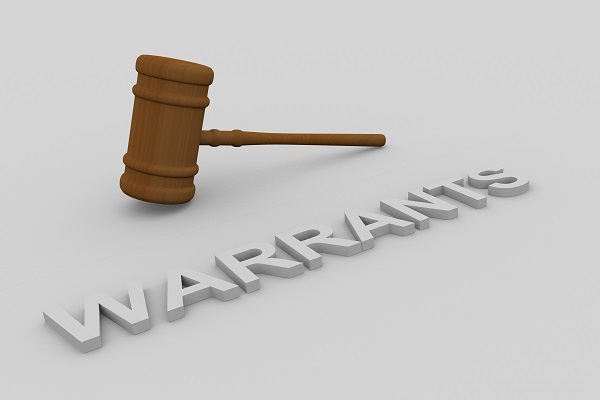Warrants are court orders that allow law enforcement officers to perform specific actions such as arrest a suspect of a crime or search a suspect’s property. There are several different types of warrants that you should know about in the event that you are ever being investigated for a crime.
Search Warrants
The Fourth Amendment of the U.S. Constitution protects individuals from unlawful searches and seizures. Due to this amendment, law enforcement officers are required to obtain a search warrant from the court prior to conducting a search of someone’s property. The only way that a law enforcement officer can conduct a search without a warrant is if the property owner consents to the search or there are other circumstances, such as an imminent threat of danger.
A search warrant will only be issued if there is probable cause that there is criminal activity or evidence of a crime at the specified location. The warrant will contain detailed information on where the law enforcement officers are permitted to search, and officers must only search locations that have been pre-approved. For instance, if a search warrant is issued that allows an officer to search a suspect’s cell phone, he cannot also search the suspect’s computer without obtaining another warrant. If an officer shows you that he has a warrant to search your property, ask to see it so you can verify that he is searching the correct location.
Arrest Warrant
An arrest warrant gives law enforcement the authority to arrest one or more persons. In order to get this warrant, law enforcement officers must prepare a written affidavit that includes information on why they have reason to believe the person named in the warrant has committed a crime. A judge will review this affidavit and issue the warrant if he agrees that the evidence is strong enough to authorize the arrest.
Once the warrant has been issued, law enforcement officers are allowed to arrest the individuals listed on the warrant at any time.
Bench Warrant
Bench warrants are those that are issued after someone fails to appear in court. If this type of warrant is issued, it gives law enforcement officers the power to find the individual listed in the warrant and force him to appear in court. The individual may then have to face contempt of court charges for missing his scheduled court date.
If you have been charged with a crime or if you are under investigation for committing a crime, seek legal representation right away. The criminal defense attorneys at Reisch Law Firm will aggressively defend you against criminal charges and protect your rights throughout the legal process. Schedule a free consultation today by calling 303-291-0555 or filling out this online form.


